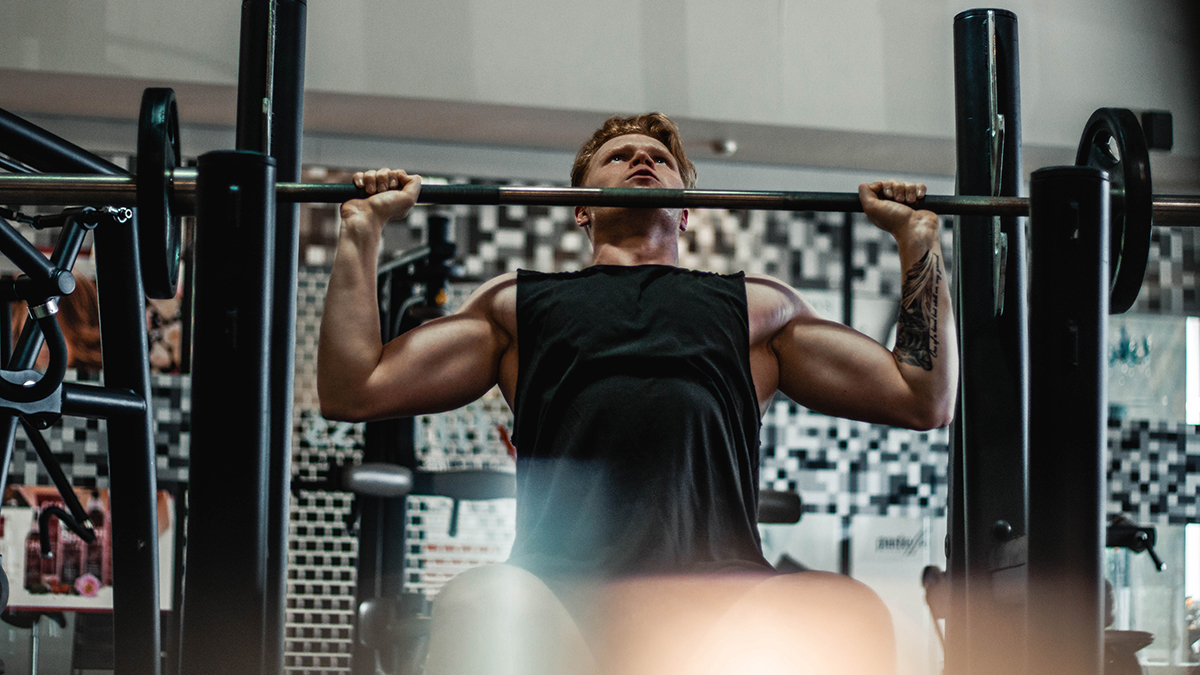6 Interesting New Discoveries About Resistance Training

How best to optimise your time at the gym? And how does your time in the gym optimise your life outside of it? These questions around resistance training have long been the subject of research for institutions the world over.
From a deeper dive into the effectiveness of a mind-muscle connection to the link between lifting weights and sleep, here is a selection of recent discoveries which have intrigued us at Form HQ.

The mind-muscle connection 2.0
The connection between muscle and mind is ancient lore for bodybuilders. The logic goes that focussing on a particular muscle when lifting promotes its activation and, by extension, development.
But a new analysis published in Frontiers in Sports and Active Living suggests that this way of thinking about the link is one reserved for aesthetes, not athletes. To truly lift heavier or for longer, it encourages thinking instead about the weight you’re lifting, rather than your muscles.
Proponents of the mind-muscle connection as we know it cite increased muscle activity when focussing on specific muscles when lifting – potentially translating to increased energy expenditure and muscle hypertrophy. But the opposite was found to be true when weightlifters focus on external effects such as the movement of a barbell. Lifts are done more economically and with less effort – thus resulting in greater capacity to lift more for longer.

Fitter people have fitter brains
Scientists have long known that the benefits of resistance training and general activity go far beyond what you can see in the mirror or what you can lift in the weights room. Past experiments haven’t, however, been able to control factors such as education, age or bodyweight to confirm the underlying causes for the cognitive upshot of training.
Analysing a large database of over 1,200 MRI brain scans, researchers conducted a two-minute walking test followed by a series of cognitive tests to measure memory, sharpness, judgement and reasoning. In doing so, they found that better performance in a two-minute walking test was directly linked to better cognitive performance and structural integrity of white matter in the brain – known to improve the speed and quality of cognitive nerve connections.
The study was conducted at University Clinic, Munich, and now that researchers have concluded that fitter people have better brain health, the next step is to ask whether making people fitter will actively improve it.

Longer life = muscle power over strength
Frailty in old age is often linked to all-cause mortality, but that doesn’t necessarily mean the OAP matching the squat 1RM of a 25-year-old has paved the way to a longer life. The key to longevity has been found to be far more linked to the power of your muscles than the strength of them.
Power depends on the ability to generate force and velocity, and to coordinate movement, so is directly related to simple tasks such as climbing stairs (the faster you climb, the more power you need). After turning 40, muscle power is said to gradually decrease, and a lack thereof has been strongly related to a shorter lifespan.
In this study, 4,000 non-athletes between the ages of 41 and 85 were enrolled to test their power during a set of upright rows. In the follow-up over six years later, participants with a maximal muscle power above the median for their gender had the best survival rate.
Professor Claudio Gil Araújo, the author of the study, provides these training tips for increasing muscle power:
- Choose multiple exercises for the upper and lower body
- Choose a weight with the load to achieve the maximal power (not so easy to lift and not so heavy that you can barely lift it)
- Do one to three sets of six to eight repetitions moving the weight as fast as possible while you contract your muscles (slow or natural speed in returning to initial position)
- Rest for 20 seconds between each set to sufficiently replenish the energy stores in your muscles to start the next set

Resistance training improves sleep
Sleepless nights? An unlikely remedy to add to your routine of cutting out screen time and popping a ZZZZs before bed could well be found in the weights room.
The discovery comes from Appalachian State University, where researchers monitored 18-25 year-olds who either trained in the morning, the afternoon, the evening or not at all. Not only did sleep improve across the board for exercisers, but results interestingly differed depending on time. Training early in the morning, for instance, was linked to falling asleep quicker in the evening, while training in the evening led to waking up less during the night.
So, if you struggle to fall asleep, try taking to the gym soon after waking up, and if you struggle to stay asleep, try saving your strength workout for around 7 pm.

Sleep improves resistance training
There is a cyclical benefit to your weights room-enhanced sleep, too. Better shut-eye has also been shown to boost the effects of strength training, and a new study published in Sports Medicine International Open has indicated that simply giving people information about the importance of sleep and ways to improve it saw an upshot to their training.
Over the course of a 12-week experiment, test subjects who received information about sleep lost significantly more body fat and became fitter than those who didn’t, with a small but not statistically significant increase in muscle mass and strength, too.
Further proof, if you really needed it, that a multicomponent behavioural approach to optimising fitness outcomes has more potential to enhance physical performance than a one-minded attitude towards weightlifting.

It’s never too late to start exercising
As we get older, generally our aspirations of athletic accomplishment lessen. But though it’s true that muscle naturally deteriorates faster after a certain age, that’s not to say muscle can’t still be built.
Recent research from the University of Birmingham confirmed this, showing that even people who have never taken to sustained exercise programmes have just the same ability to build muscle mass as highly trained athletes of a similar age.
Against expectations, muscle biopsies of ‘master athletes’ in their 70s and 80s who still compete in their respective sports and healthy individuals who did not partake in regular exercise showed equal capacity for building muscle after exercise. Though a lifelong commitment to good health and fitness is certainly the best approach, the findings show it’s never too late to delay age-related frailty and muscle weakness.
_
Form’s Performance Protein has been specially formulated to provide a complete spectrum of amino acids to support muscle growth and repair. With 30g of multi-source plant-based protein per serving, it’s our recommended supplement for anyone following a weight training programme.


















